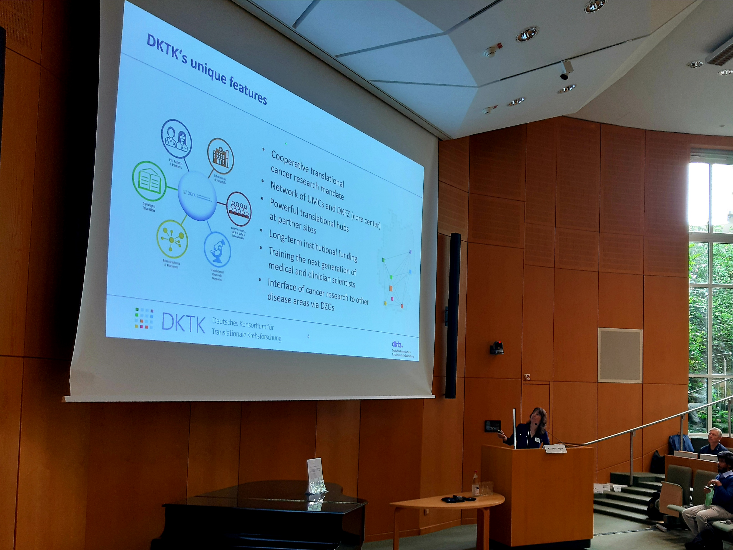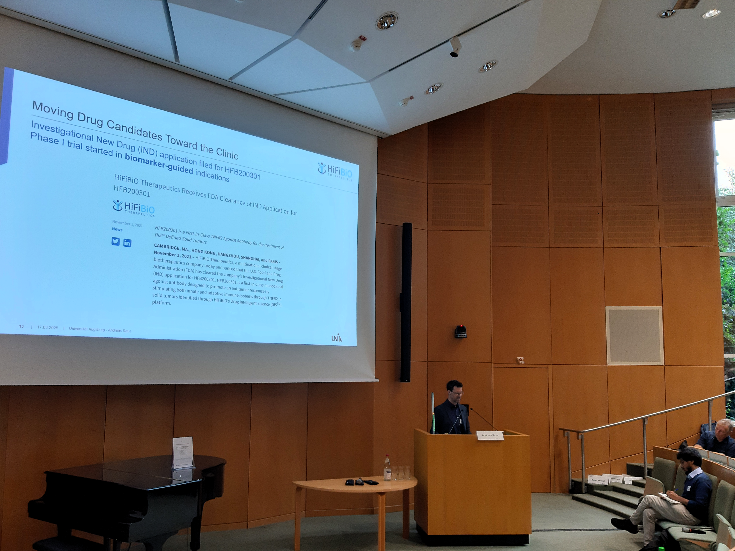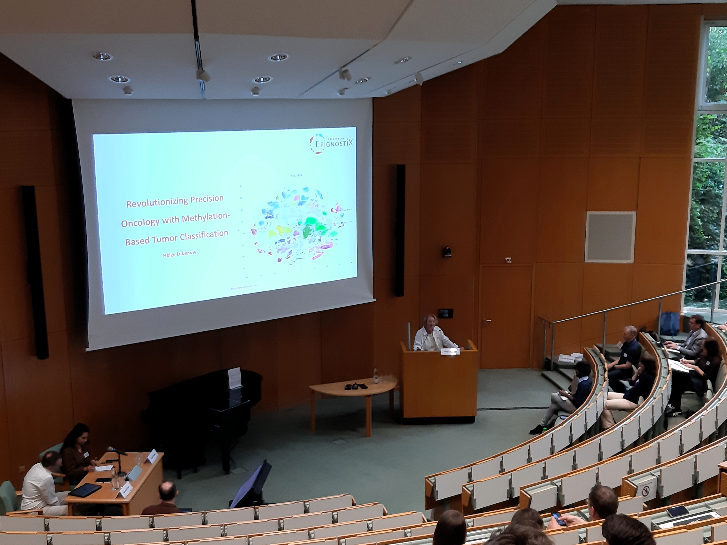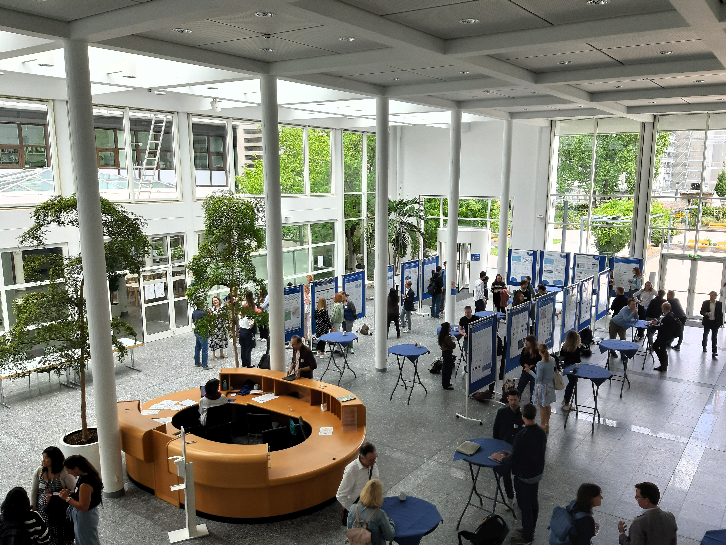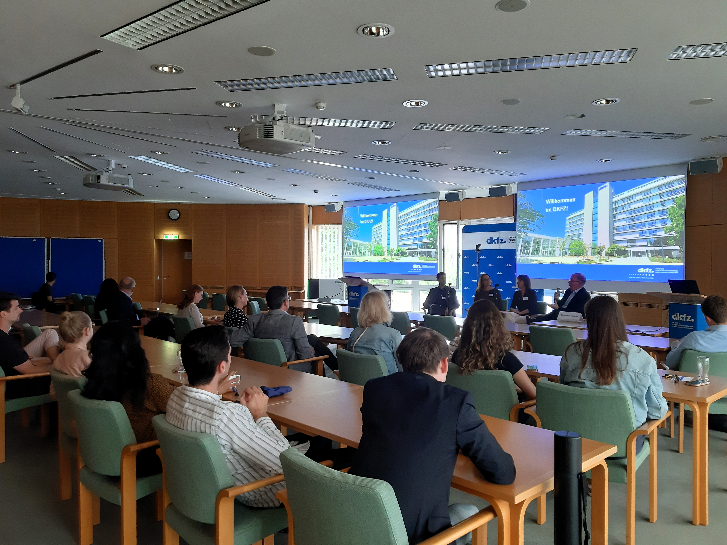16/07/2025
Print PageDKTK Heidelberg Community Meeting 2025
Christine Opitz, Spokesperson of the DKTK Translation Center Heidelberg, opened the meeting. In her opening speech, she emphasized the importance of translating innovative scientific approaches into practice, as well as fostering scientific exchange—not only within Heidelberg but also beyond, for example through the Ad-hoc working groups. During the first localized DKTK Seed Funding Call, the Heidelberg site awarded funding to two projects, which were revealed during the meeting and are set to start this autumn: “Reprogramming the Neuroblastoma Microenvironment with JAK Inhibitors and Checkpoint Therapy” (REJAKT-NB), presented by Pascal Kohmann (DKFZ, KiTZ), and “Towards Molecular MR Mammography for Cancer Care” (MAMMCARE), presented by Philip Boyd (DKFZ).
Another highlight was the keynote lecture by Andreas Raue (Department of Computer Science, University of Augsburg), who shed light on the role of translational data science in drug development. He identified existing challenges and demonstrated how computer-based methods such as deep learning can help overcome these gaps, with the ultimate goal of better utilizing preclinical data to optimize drug candidates and translate them into clinical predictions and applications. In this process, it is especially important to consider the heterogeneity of patients’ tumors.
Following the keynote, several sessions focused on how preclinical research results and innovations can be translated into clinical applications. Contributions from the DKFZ Innovation Management, industry representatives (Heidelberg Epignostix and Evotec), and other partner institutions (DKFZ, NCT Heidelberg, KiTZ, UKHD, and Hi-STEM) provided a broad spectrum of perspectives and focal points. Another key emphasis was the integration of clinical insights back into research processes (“reverse translation”).
The lunch break and poster sessions offered ample opportunity for further discussion and networking. In the afternoon, young scientists presented selected posters and research projects through short talks, showcasing the impressive diversity of research in Heidelberg.
Last but not least, a lively panel discussion featured Christine Opitz, Andreas Raue, Friedrich Reinhard (Evotec), and Stephanie Rössler (Pathology, UKHD), alongside all participants, who had the chance to ask questions and contribute their own perspectives. The main focus was on the topics presented earlier in the day and how successful translation can be achieved. Everyone emphasized the importance of sharing experiences, success stories, lessons learned, and data. “That we all do this for the patients is a fitting final thought for this meeting—and in this spirit, we should continue today’s discussion,” said Christine Opitz as she thanked everyone for their participation in the Heidelberg Community Meeting.
